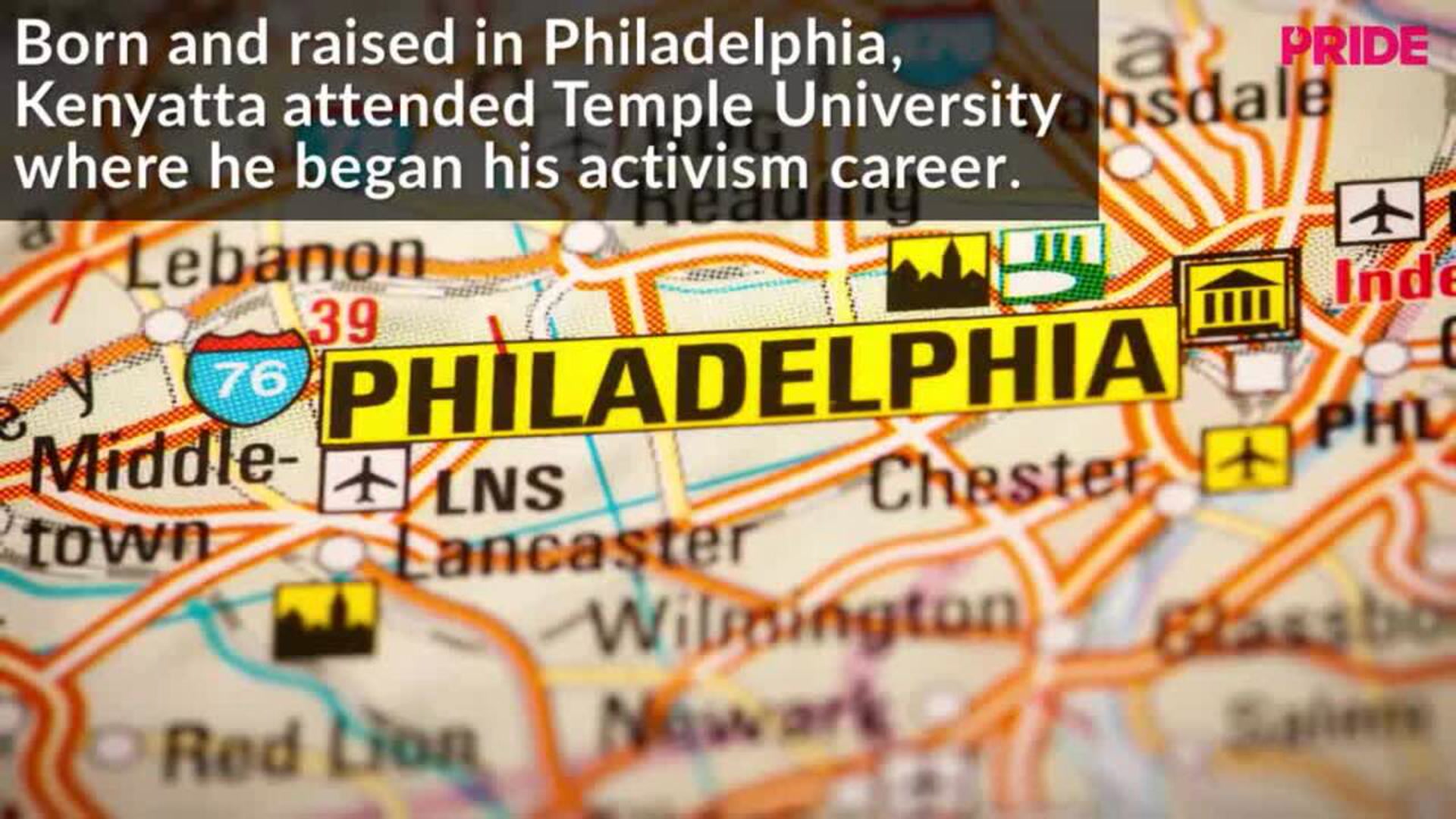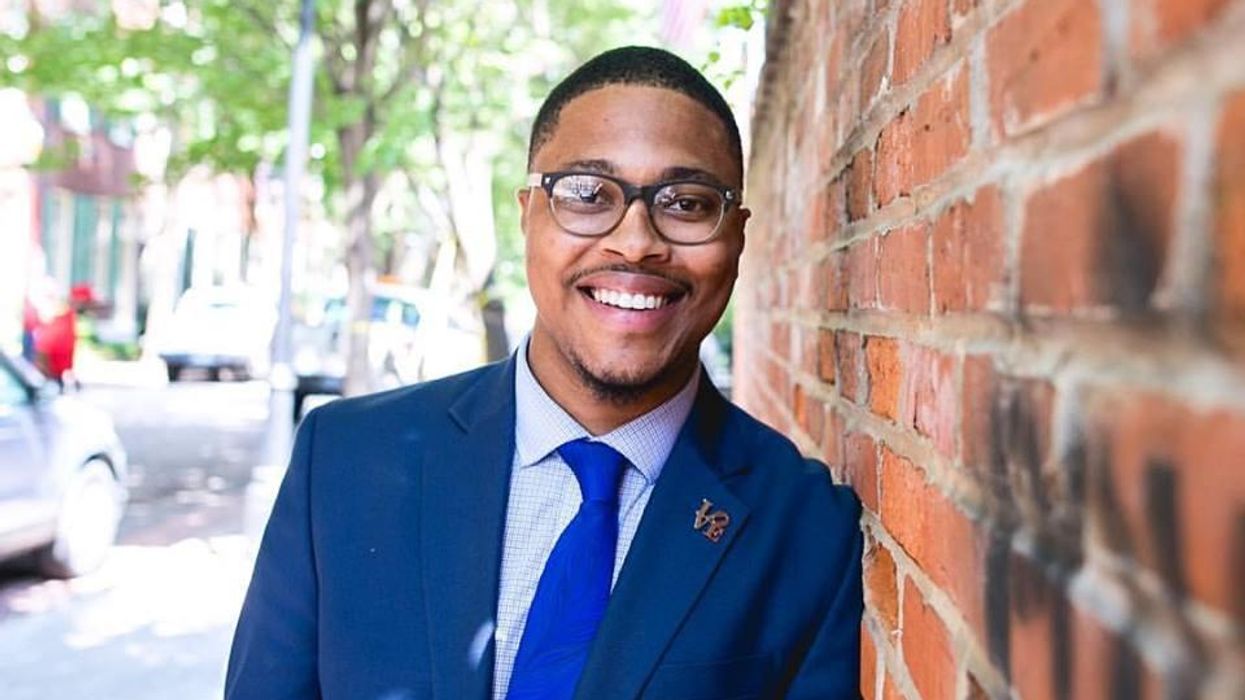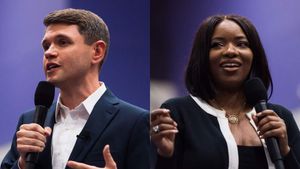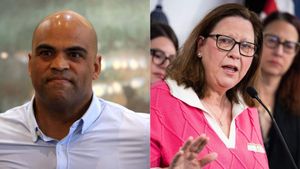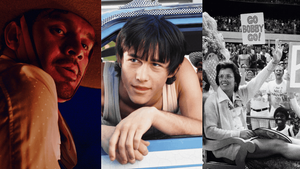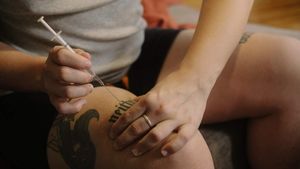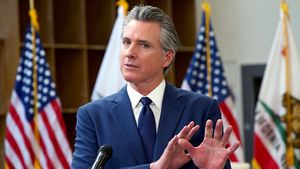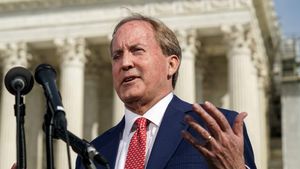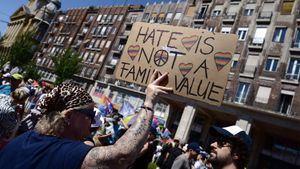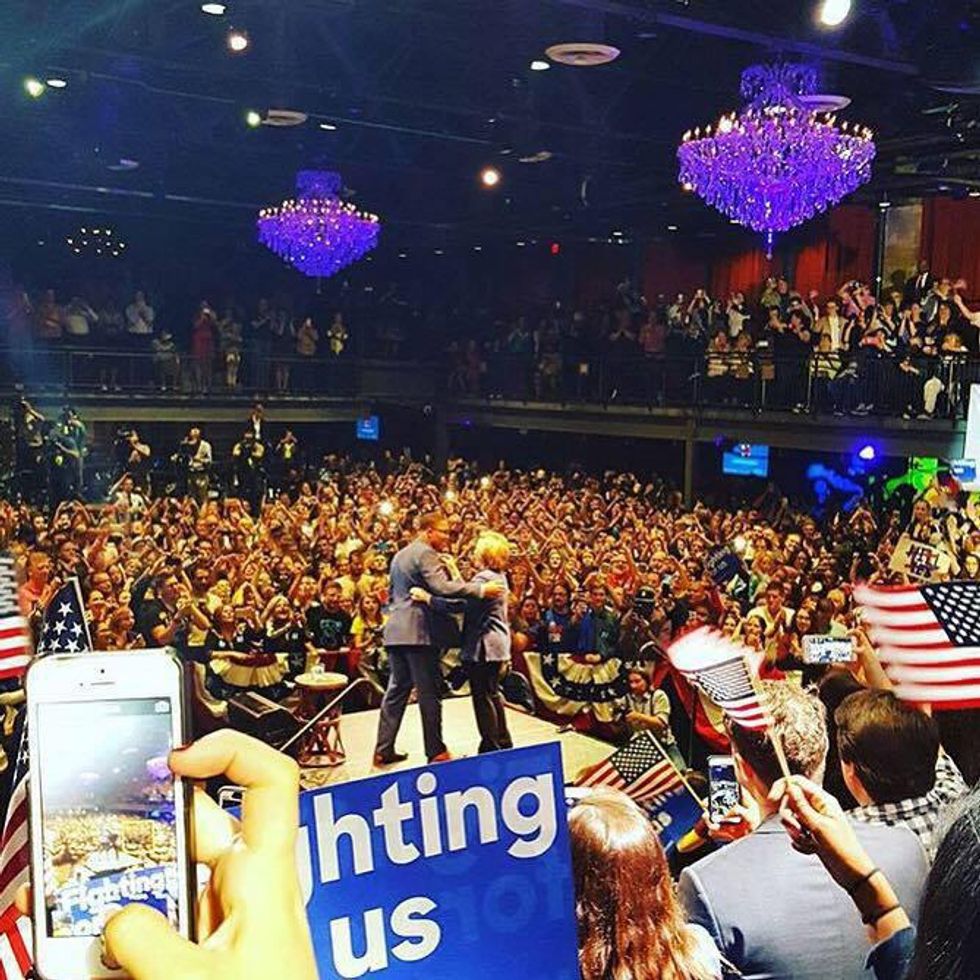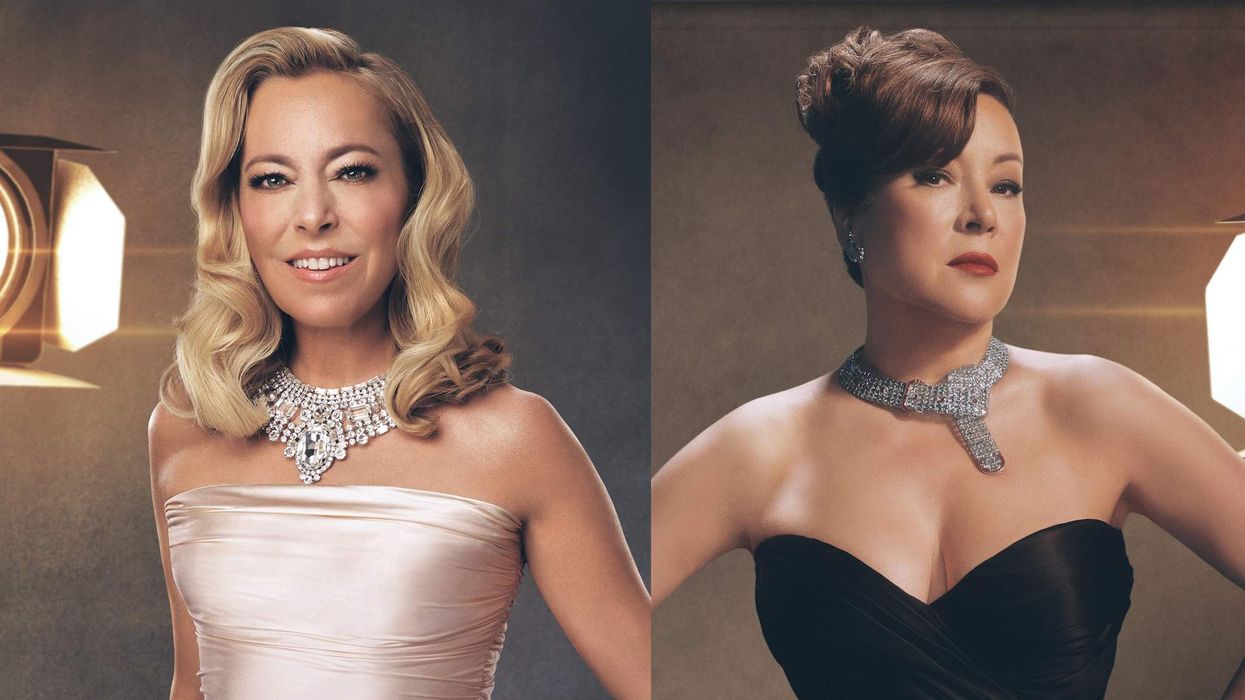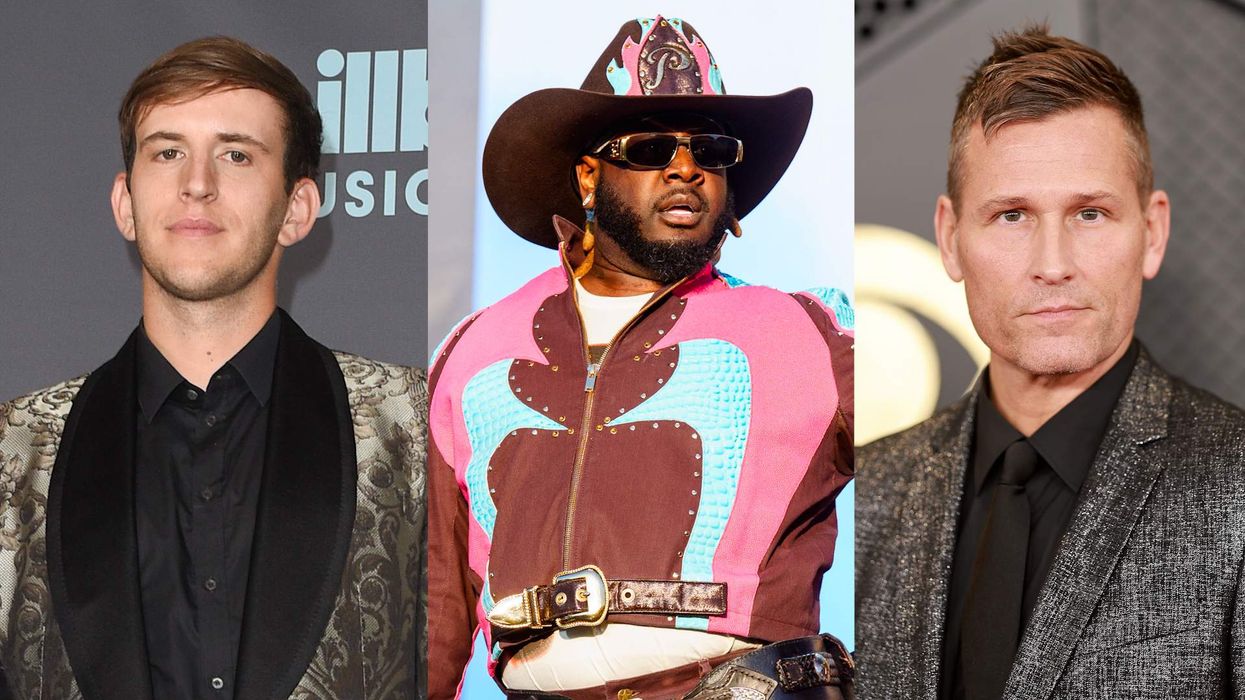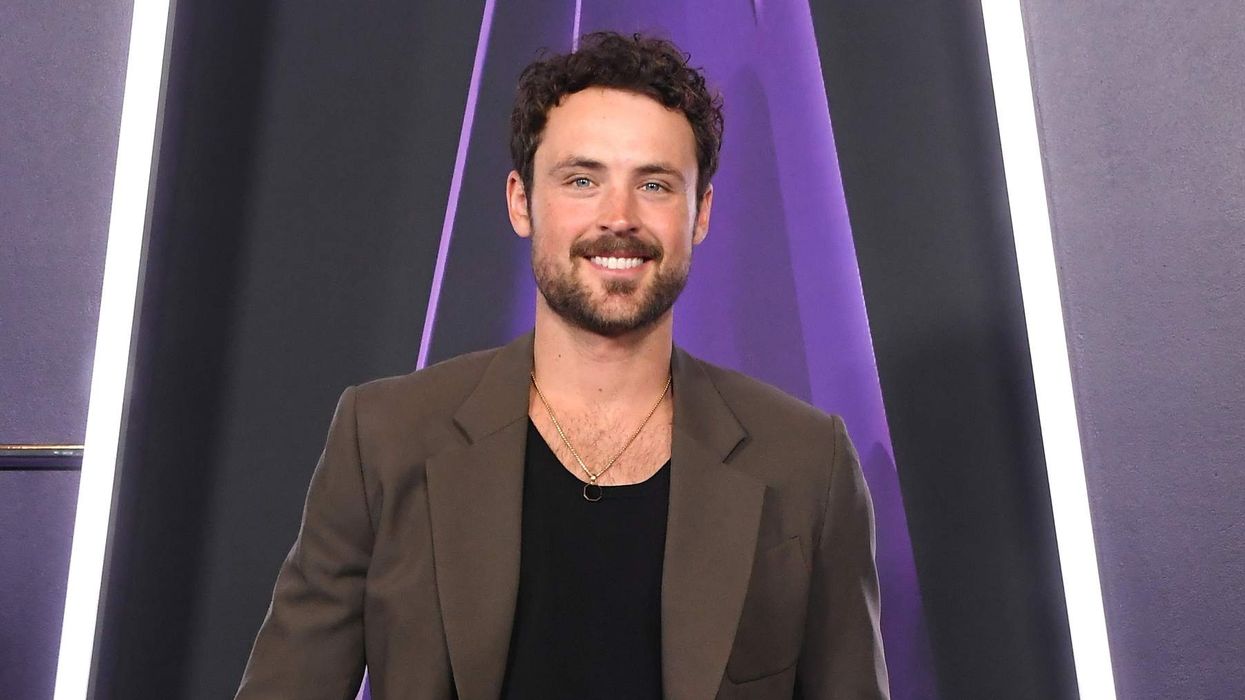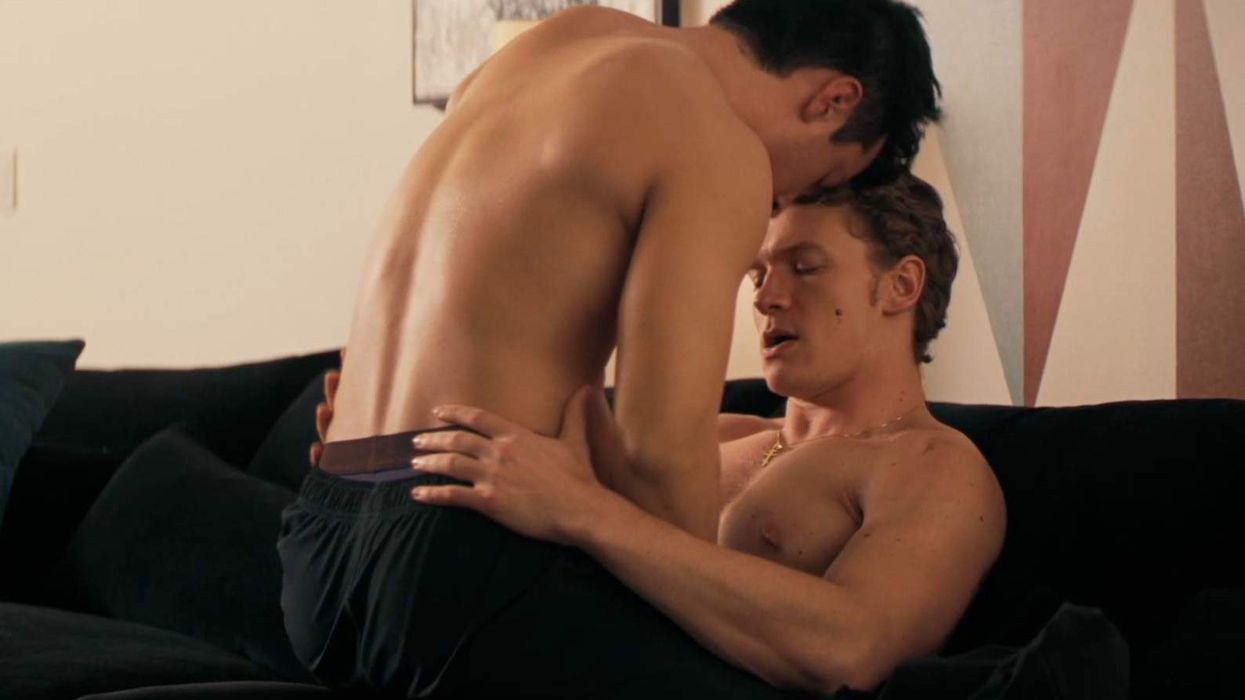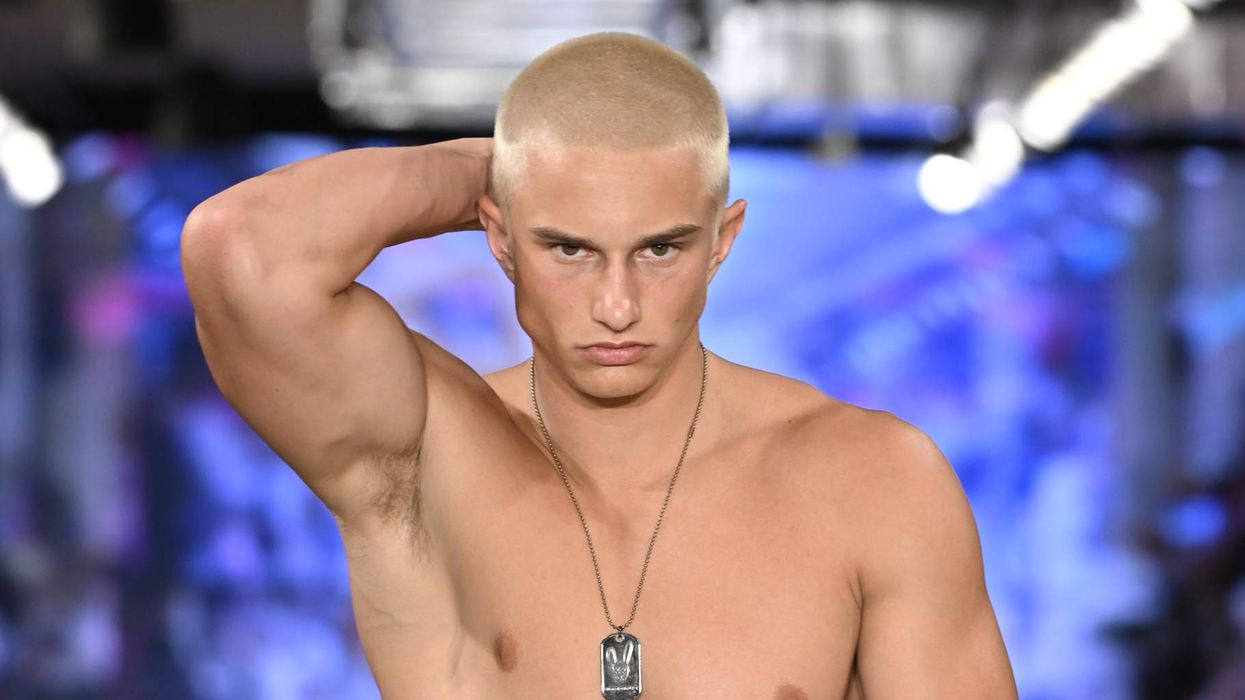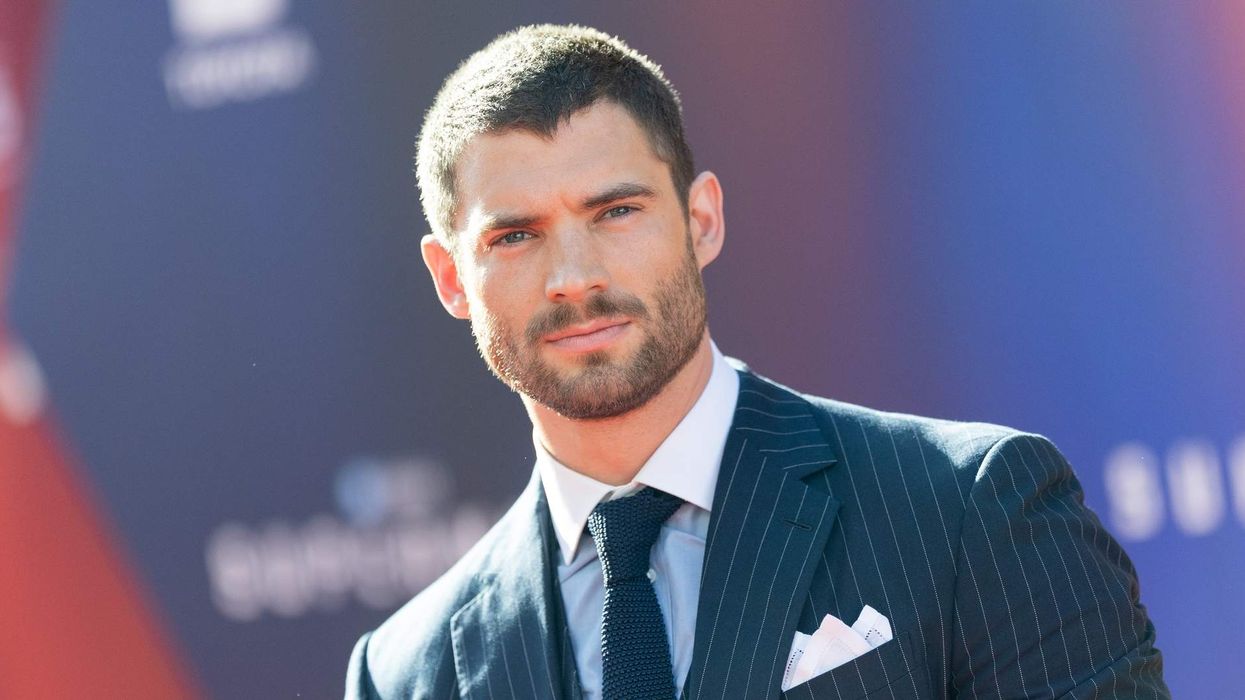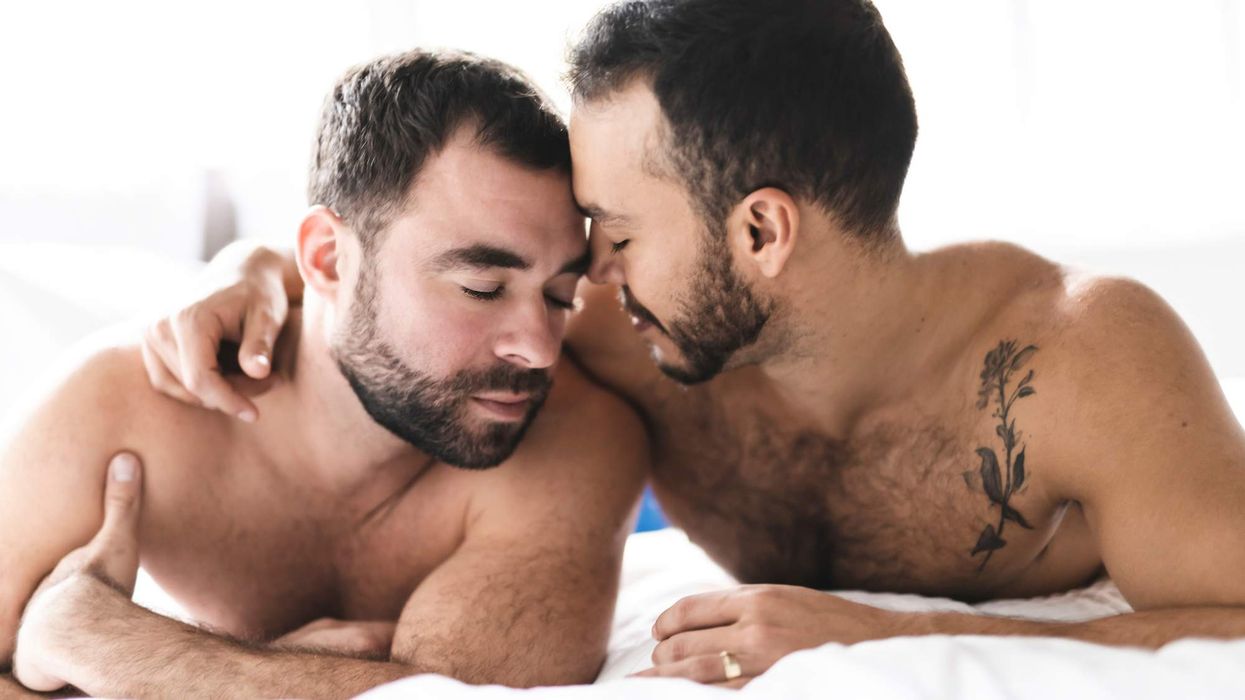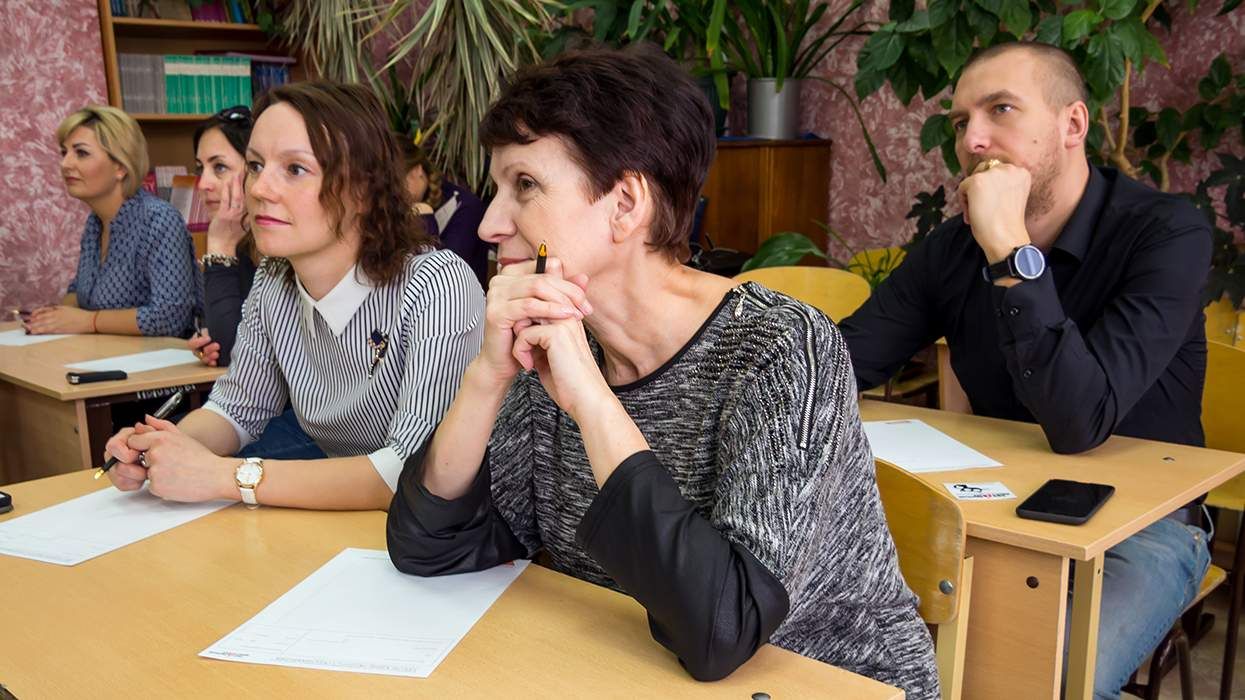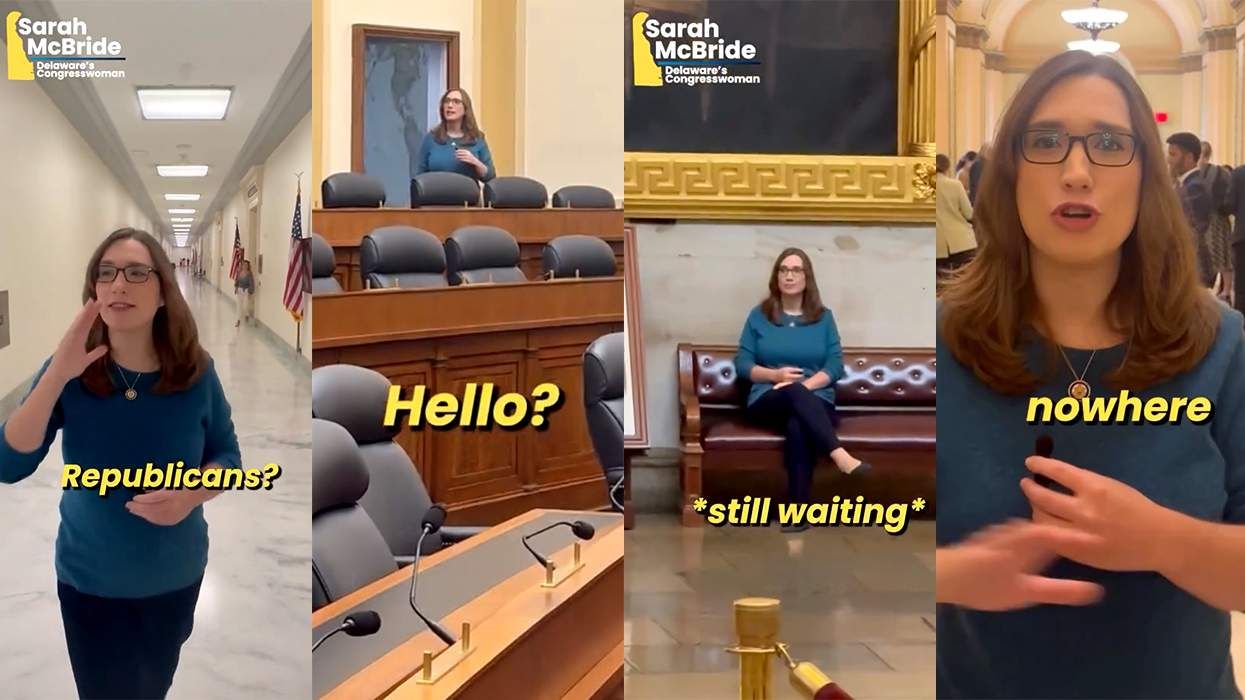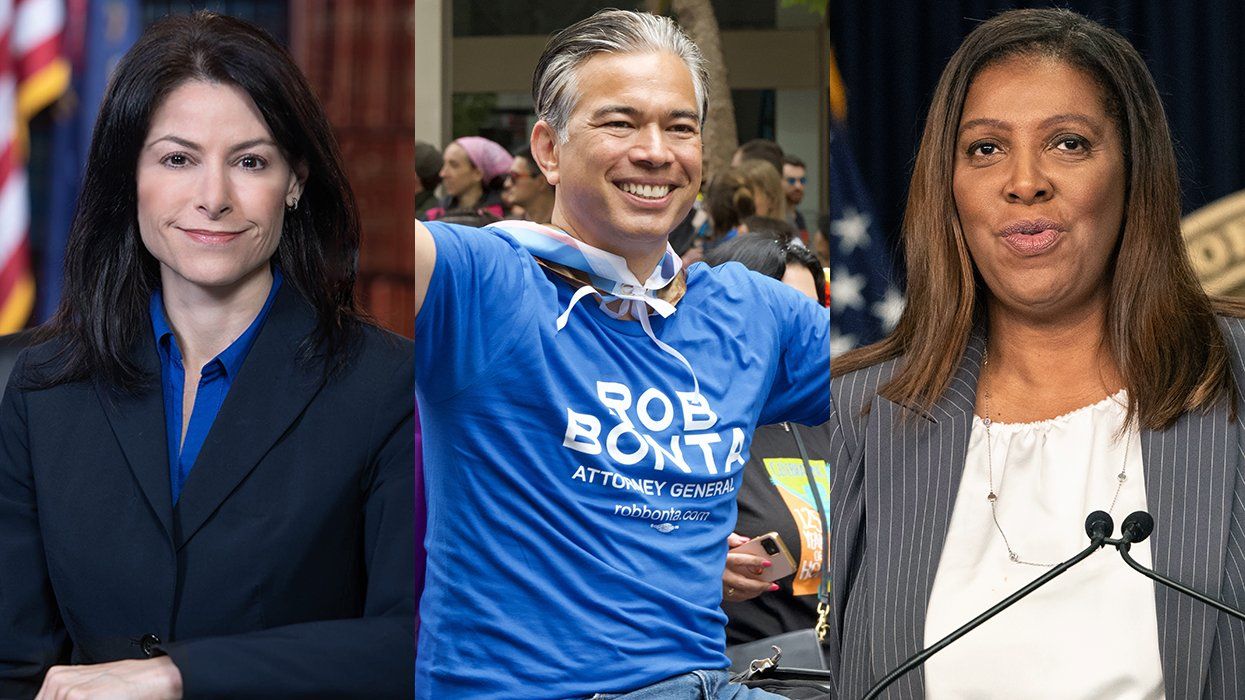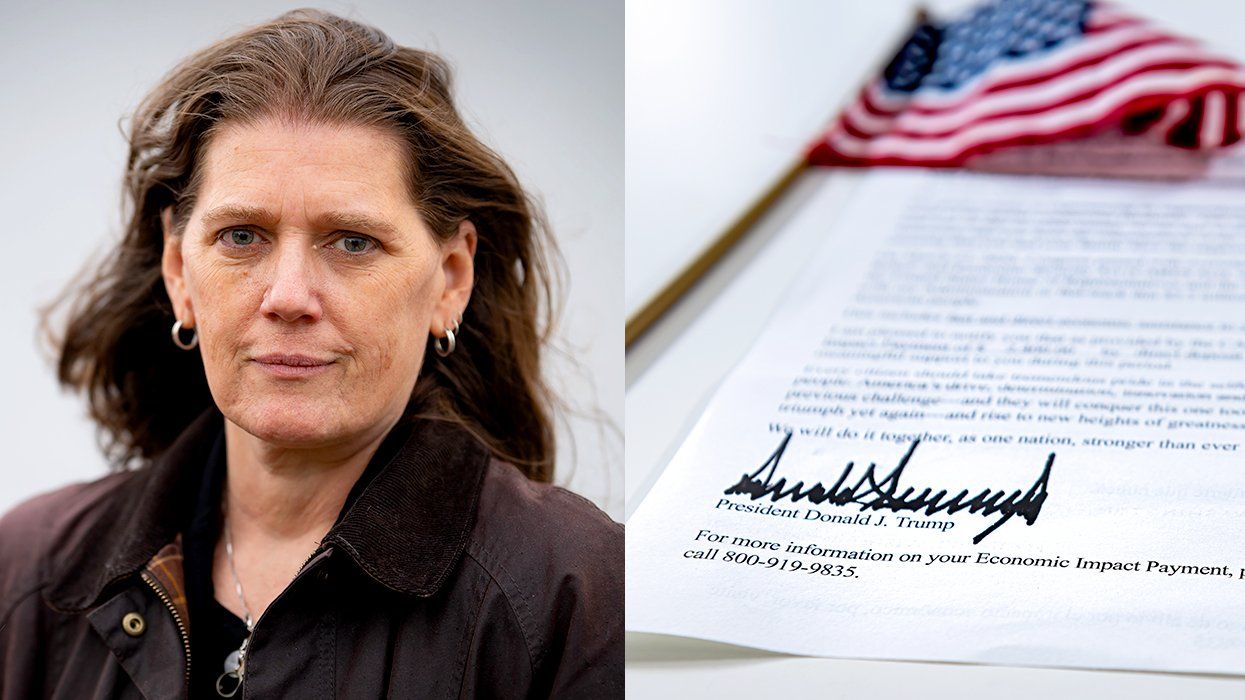Born and raised in North Philadelphia, Malcolm Kenyatta lives near the block where he grew up. Temple University is a big piece of his story. It’s where his parents met and where he was born. Kenyatta also graduated from Temple University with a Bachelor’s Degree in Public Communication 22 years later. Go Owls!
At Hillary Clinton’s first rally in Philadelphia, Kenyatta was asked to introduce her. Months later, the campaign used his inspiring words in an ad that in two days has almost 400,000 views. We chatted with the 26-year old LGBT advocate about his journey to public service, coming out, and why he's with her.
“North Central Philadelphia is a historic place. It’s where a lot of iconic leaders were born and got their start,” Kenyatta told PRIDE. “Cecil B. Moore, Leonard Sullivan, the list goes on and on. But one of those folks was my grandfather. Muhammad Kenyatta who was a civil rights activist. He worked around the country, but a lot of his work was done right here in Philadelphia. From 1973 to 1974, he was instrumental in shutting down the black mafia, and he staged many widely covered citizens’ arrests that ultimately led to the police being tougher with the black mafia.”
“I feel that his example and energy was very much transferred to me. I cannot remember a time when I was not interested or engaged with what was happening in the community,” he says.
Highly involved with his church, Kenyatta would assist his mother at soup kitchens, clothing drives, and with evangelism efforts in the community. Growing up in the church, coming out for Kenyatta wasn’t easy. “My coming out story revolves around me actually coming home from church with one of my good friends. My Mom was standing at the door and she was looking at me and just asked, ‘Are you gay?’ I don’t know what possessed me but I said, ‘Yes.’ And that led to a number of years of me and my mom having a very, very tough relationship. She just did not want me to be gay.”
“Me and my mom have a really strong relationship now but it definitely reminded me of the work we still have to do around this issue of LGBT folks,” Kenyatta explains. “Of getting people to understand the difference between sexuality and gender and all of those nuances. My mom thought at first that I was trans. People don’t have an understanding of what being gay means, what being trans means, what being queer or questioning means. I am very happy that I am able to help educate people about our community. But it was a tough time.”
One of the coping mechanisms that helped him deal with his mother not accepting his gayness was poetry. This passion led to an initiative he later started during his time at Temple University. “I started a poetry collective called Babel and Babel just this past year was honored at the National College and University Slam. They are still thriving and doing really well.”
Kenyatta’s dedication to altruism continued at Temple. He also started a program called S.T.E.P.S. — Students Together Ending Pain and Suicide. “There had been a number of suicides on campus including one of a good friend of mine. We did a performance and brought in some mental health professionals and just made some resources available to students. I will never forget, a student walked up to me a few days later. She said, ‘Hey, I was coming into the Student Activities Center because I wanted to get something to eat. But I had just constantly been so depressed and I had no idea that this would be going on. And I stopped and I talked to someone and I am now talking to a counselor.’ To know that the work that you do can touch and impacts people’s lives, that really sat with me.”
After graduating, Kenyatta begin to work on countless campaigns, including trying to get out lesbian Sherrie Cohen elected to city council. This sparked his interested in running to become a delegate for Democratic Party. His run was proven successful. He got a lot of a press out of the convention, becoming a leader in the movement to get Clinton elected. But there were obstacles from within the party to overcome.
“Delegates were having so many important conversations behind the scenes,” Kenyatta explains. “Those moments are really what comprised for me my convention experience. I was talking to a woman from Cleveland who was a Bernie delegate, who was obviously upset. I tried convincing her to support Hillary. And I pleaded for her to think about if she goes Bernie or Bust, what does that really mean? Bernie or Bust means that immigrant families would be bust up. It would bust up black and brown people like me. It would bust up LGBT people like me.”
“With a candidate on the other side who picked Mike Pence. I am so offended by Pence. I find his nomination just so offensive as a gay person. Yes, Trump has said a number of horrible things and obviously there is some proof he has assaulted some women. But Pence has also done a lot of horrible things — particularly towards the LGBT community.”
Recently, claims and allegations of racism in Philadelphia’s Gayborhood have taken over the social climate of the LGBTQ community there. After a few bars began enforcing dress codes and a video surfaced of a bar owner using the N-word, hearings and community forums were scheduled to be conducted to hear concerns by the city’s community to bring these issues and more to light. Kenyatta was one of those voices.
“This isn’t just about a video. This isn’t just about one bar owner or one bar at one moment. This is about a culture that still separates out some who are considered more normal than some others who are deemed not that. We have a profound responsibility as a community that understands discrimination and being treated as different for just being who we are. We have a profound responsibility to never inflict that pain or discrimination on anybody else.”
“It can’t just be about saying the N-word. It has to be about what people put on their profiles on these apps and the way we talk to each other. When you say, “No fats no fems no black no Asians. That is the same mentality that will allow a bar owner when no one is looking to use the N-word repeatedly.”
“I do think people are paying attention to this. This is going to be a catalyst for serious conversations to root out the cancer of racism and discrimination in our community.”
A few days before Hillary Clinton first came to Philadelphia for a rally during the primary, Clinton’s campaign reached out to Kenyatta asking him to introduce her. “I still don’t know who in the campaign said, ‘Let’s pick this guy,’ but I am so thankful for whoever they are.” His speech poured out of him, making writing it easy. When he got to the venue, he prepared himself to have the speech projected on a tele-prompter. He was told he would have to do it off the cuff. Not memorized, he spoke eloquent and powerful words from his heart – not off a paper or a screen.
Months later, Clinton’s campaign transformed the instruction into a campaign video used in a pivotal moment, just a handful of days away from Election Day. “I freaked out! I knew a few days before but still had no concept what it was going to be. I know we are on the record but I have to tell you, I cried twice. Once when I first watched and then a second time when I called my Mom to watch it with me.”
“As a geeky, political nerd, this is the closing argument time. The messages that you send out during this critical time are important and says a lot about your campaign. The fact that the secretaries’ closing argument is to put up a speech by a gay, poor, black boy from North Philly says a lot about who she is. And a lot about the type of president she will be.”
“We didn’t go 44 presidents without having a woman because there is still a system that values straight, white, cis-gender men over other things. This is an important moment to break that ceiling.”
Watch his speech below:
